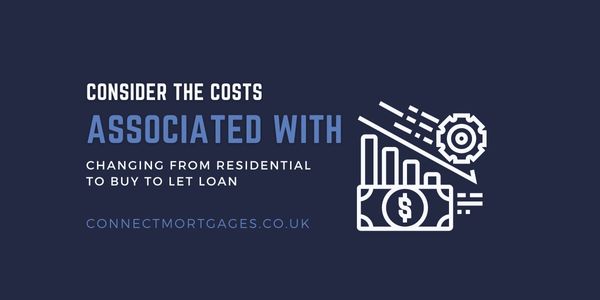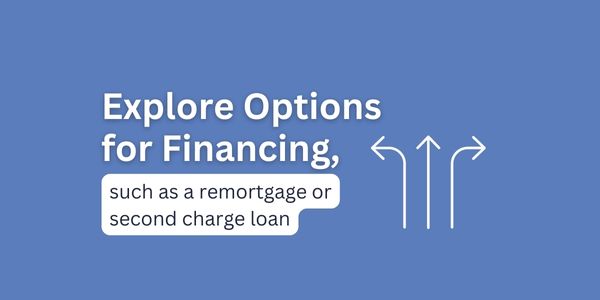Do you want to take advantage of the rising rental demand and become a landlord? If you already own a residential property, switching to a buy-to-let mortgage could help increase your income.
This guide explains how to change a residential mortgage to a buy-to-let. We will cover key considerations, including tax implications and finding suitable tenants.
Converting your property into a buy-to-let can offer financial benefits, but it requires careful planning. From assessing your lender’s terms to ensuring compliance with UK lending rules, we’ll outline the steps involved.
Whether you are a first-time landlord or looking to expand your property portfolio, this guide provides the information you need. Let’s explore how to make the switch smoothly and successfully.
Understand your objectives and eligibility for a Buy-to-Let mortgage
Before you change your residential mortgage to buy-to-let, it’s essential to understand your goals and whether or not you’re eligible for a buy-to-let mortgage.
Speaking with a mortgage adviser who can help determine if a buy-to-let property suits you is advisable. They can look into your financial goals and advise you on whether this change is a wise decision.
They can also help you check your eligibility for a buy-to-let mortgage. This is key, as many lenders will only approve a change from residential to buy to let if specific criteria are met. So make sure you check all the requirements before making any changes.
Assess the rental potential of your property
You’ll need to assess the rental potential of your property. First, you must check whether your home is suitable for renting out. Next, consider factors like location, size, and amenities in the area; this will help you decide if tenants would be interested. Finally, research the local rental market and compare it to similar properties.
Consider the costs associated with changing from residential to Buy to Let loan

You should also consider its charges when changing from a residential mortgage to buy to let.
This includes legal fees, stamp duty, and other applicable taxes in your region. When planning for this change, consider all of these into your budget.
In addition, you’ll need to account for ongoing expenses such as property maintenance, insurance costs, and any potential mortgage payments.
Understanding all the associated costs will help you decide about your change from residential to buy to let.
Research different lenders’ offerings, their terms and interest rates
After assessing your eligibility and the rental potential of your property, it’s time to research other lenders’ buy-to-let offerings.
Compare the terms, interest rates, and other features available on their mortgages. Then, read through all the fine details before committing to any change from a residential mortgage to buy-to-let.
This is important for ensuring you get the best deal and understand your loan’s conditions.
Calculate whether you can afford to make the switch
Calculating whether you can afford to change from a residential mortgage to buy to let is essential.
Ensure that your rental income will cover all the associated costs of running a property and that you have enough saved for unexpected expenses.
Besides, consider how much of your existing mortgage balance you can pay off before making the change, as this will help you to reduce your monthly mortgage payments.
Finally, consider whether or not you can afford any additional taxes that may come with the change.
Explore options for financing, such as a remortgage or second charge loan

You should consider various financing options to change your residential mortgage to a buy-to-let.
A remortgage or second charge loan may suit this change and provide more financial flexibility.
Before committing to any loan, it is essential to research all the different lenders and compare their interest rates and other fees.
Before signing, you should always ensure you fully understand the terms of the loan agreement. This will help ensure you get the best deal for your change to a buy-to-let mortgage.
Gather necessary documentation, such as proof of income and financial history
When changing your residential mortgage to a buy-to-let, it is essential to gather the necessary documentation before applying.
This includes proof of income, financial history and any other documents relevant to your application.
In addition, you will need to provide information about the property you are purchasing, such as valuation reports and surveyor’s certificates.
Having all the documentation ready to submit can ensure that your change to a buy-to-let mortgage is processed quickly and successfully.
Speak with your existing mortgage lender about transferring your residential loan to Buy to Let
Before applying for a change from a residential mortgage to a buy-to-let, you must speak with your existing mortgage lender about transferring your current loan.
Your lender can provide you with special packages or discounts if you choose to change your loan type.
Also, speaking with your lender can ensure that your change is processed quickly and with minimal hassle.
Your mortgage lender is the best person to speak with to ensure that your change from residential to buy-to-let goes smoothly.
Seek professional advice from a legal or mortgage adviser.
It is always a good idea to seek professional advice from legal or mortgage advisers when considering any significant changes to your mortgage.
These professionals can provide invaluable advice on the process and potential risks of changing from a residential mortgage to a buy-to-let.
They can advise you on the best financing options for your situation and help you make the right decision for your needs.
Taking the time to seek professional advice can help ensure that you make the best choice when changing your mortgage.
Sign and submit the relevant paperwork.
When you have all the necessary paperwork ready and have chosen a loan type, the next step is to sign and submit the required documents.
The paperwork may include loan applications, documents related to your switch to a buy-to-let mortgage, and any additional information requested by your lender.
Once submitted, your paperwork will be reviewed, approved, or rejected. If approved, you can transition from a residential mortgage to a buy-to-let mortgage.
Following these steps helps ensure your switch from a residential mortgage to buy-to-let is as smooth as possible. With proper preparation and research, you can meet your needs and make the most of your new loan.
If you have any questions or need help switching from a residential mortgage to a buy-to-let, speak with a mortgage adviser. They can guide you through the process and recommend the best action.
Switching from a residential mortgage to a buy-to-let mortgage is a significant decision. It is essential to ensure you are fully prepared before making the change.
By carefully following these steps and conducting thorough research, you can simplify the process and make the most of your new loan. With the right preparation, you can confidently switch from residential to buy-to-let.
Thank you for reading our “Change Residential Mortgage to Buy to Let | A How To Guide. ” Stay “Connect“-ed for more updates soon!







